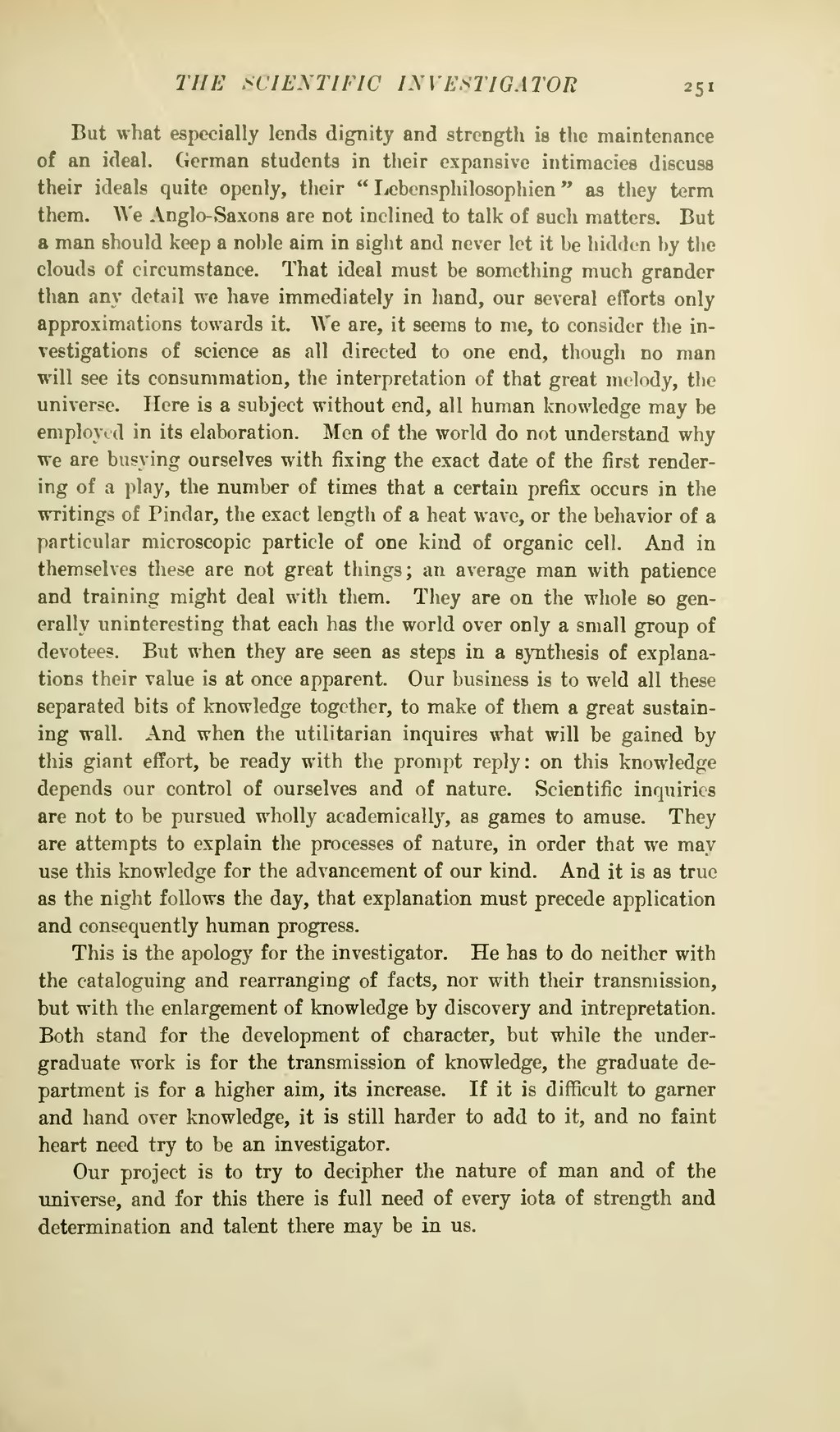But what especially lends dignity and strength is the maintenance of an ideal. German students in their expansive intimacies discuss their ideals quite openly, their "Lehensphilosophien" as they term them. We Anglo-Saxons are not inclined to talk of such matters. But a man should keep a noble aim in sight and never let it be hidden by the clouds of circumstance. That ideal must be something much grander than any detail we have immediately in hand, our several efforts only approximations towards it. We are, it seems to me, to consider the investigations of science as all directed to one end, though no man will see its consummation, the interpretation of that great melody, the universe. Here is a subject without end, all human knowledge may be employed in its elaboration. Men of the world do not understand why we are busying ourselves with fixing the exact date of the first rendering of a play, the number of times that a certain prefix occurs in the writings of Pindar, the exact length of a heat wave, or the behavior of a particular microscopic particle of one kind of organic cell. And in themselves these are not great things; an average man with patience and training might deal with them. They are on the whole so generally uninteresting that each has the world over only a small group of devotees. But when they are seen as steps in a synthesis of explanations their value is at once apparent. Our business is to weld all these separated bits of knowledge together, to make of them a great sustaining wall. And when the utilitarian inquires what will be gained by this giant effort, be ready with the prompt reply: on this knowledge depends our control of ourselves and of nature. Scientific inquiries are not to be pursued wholly academically, as games to amuse. They are attempts to explain the processes of nature, in order that we may use this knowledge for the advancement of our kind. And it is as true as the night follows the day, that explanation must precede application and consequently human progress.
This is the apology for the investigator. He has to do neither with the cataloguing and rearranging of facts, nor with their transmission, but with the enlargement of knowledge by discovery and intrepretation. Both stand for the development of character, but while the undergraduate work is for the transmission of knowledge, the graduate department is for a higher aim, its increase. If it is difficult to garner and hand over knowledge, it is still harder to add to it, and no faint heart need try to be an investigator.
Our project is to try to decipher the nature of man and of the universe, and for this there is full need of every iota of strength and determination and talent there may be in us.

